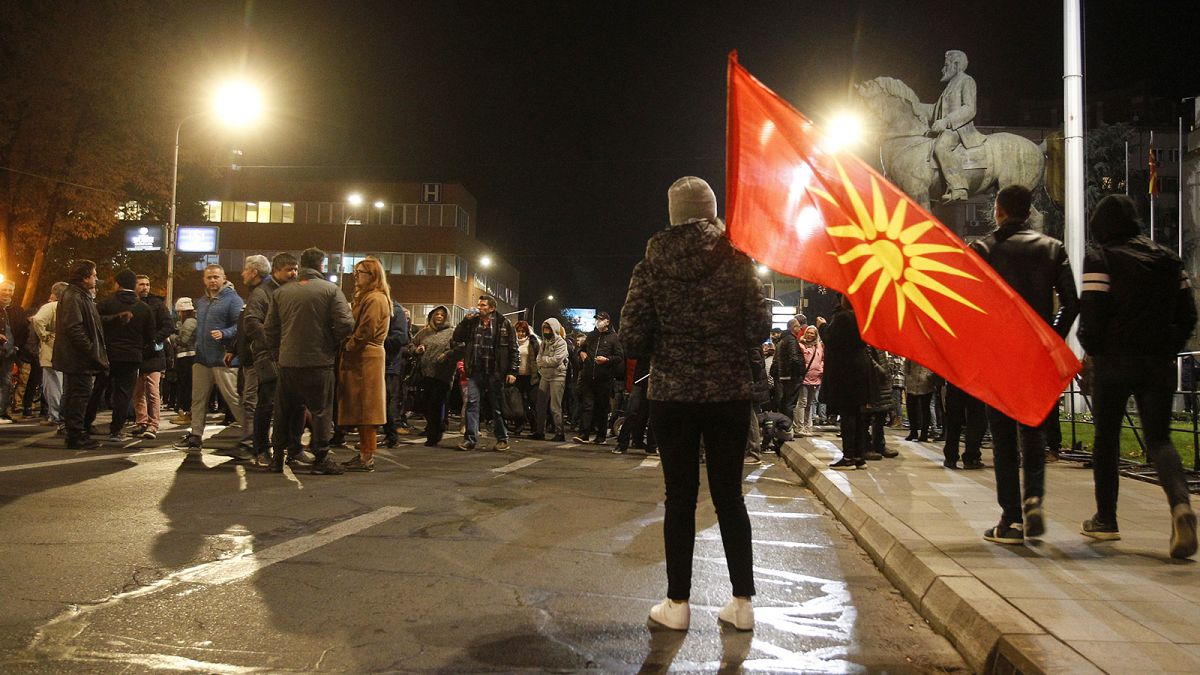With EU membership hopes all but quashed, the countries of the European region are undergoing a serious population crisis, as the young and educated leave in droves.
The Western Balkans is facing an emigration crisis.
This is particularly evident in North Macedonia, as its most recent census shows.
The country has shed at least ten percent of its two million people since the last census in 2002, the latest numbers revealed.
Abysmal economic growth and a lack of investment have clobbered the country, now home to just 1.8 million people, in its 30 years of independence.
Villages and small towns such as Valandovo, 146 kilometres from the capital of Skopje, offer few jobs, pushing the ambitious and able to search for work and settle elsewhere.
"Five of my friends from our class of 20 students have already moved abroad with their families," said Bojan Nikolov, 24, a member of the town’s youth municipal council.
Just like in many other smaller communities across the region, most of Valandovo’s income is tied to agriculture, which pays so little that most young people choose to move abroad in search of a better life and more earnings.
"The spirit of young people has been systematically destroyed," Pero Kostadinov, the newly elected 33-year-old mayor of the town close to the border with Greece. "The enthusiasm to fight and stay home has been lost."
Transition troubles and bleak EU prospects to blame
Since the country declared independence from the former Yugoslavia in 1991, many Macedonians hoped the promise of quick integration into the European Union would provide a brighter future.
But North Macedonia's path to EU membership has been repeatedly blocked for decades, first by Greece and now Bulgaria, ushering in strong doubts that the country will ever join and pushing many to jump ship.
Bosnia and Kosovo have not even been granted candidate country status despite their best efforts, while Serbia and Montenegro are also far from becoming full-fledged members, despite both being considered as forerunners for accession and the former recently opening new negotiating chapters with the bloc.
In neighbouring Albania — coupled with North Macedonia in its EU accession process and similarly stalled by the Bulgarian veto — about 1.7 million people, or roughly 37 per cent of the population, have left the country in the past three decades, according to government figures.
Hundreds of thousands left Serbia to resettle abroad after sanctions against the regime of president Slobodan Milošević caused by the Yugoslav dissolution wars in the 1990s and the 1999 NATO bombing to stop the conflict in Kosovo pummelled the economy, with estimates suggesting up to 10,000 doctors alone left in the last 20 years.
In Bosnia and Herzegovina, research from local NGOs shows that at least 400,000 Bosnians have emigrated from the country over the course of the past eight years.
The country's most recent political crisis — deemed to be the most troubling since its independence and the end of the 1992-1995 war — is expected to drive even more people to depart soon.
"All the countries of the Western Balkans are affected to varying degrees by emigration," said Ilir Gedeshi, a professor of economics based in the Albanian capital Tirana.
"The main reasons are economic, but apart from that, social reasons occupy an increasingly important place."
Croatia no better despite its EU membership
But for Albania, Kosovo, Montenegro, North Macedonia, Bosnia, and Serbia — all hoping that EU membership will reverse their fortunes — the example of Croatia might indicate that the union is not a miracle cure for their woes.
Since joining the bloc in 2013, its population of just over four million has shrunk nearly 10 per cent in a decade, according to preliminary census findings.
The UN projects that Croatia will have just 2.5 million people by the end of the century. Demographers warn that the country's tiny population may lack the resilience to weather further losses.
In December, authorities sought to reverse the brain drain by promising Croatian expatriates in the EU up to 26,000 euros to return and start a business.
But for some areas, it may already be too late.
"For sale" signs litter Požega, one of the towns that were hit the hardest by war in the 1990s.
More than 16 per cent of the Požega Valley's population of nearly 80,000 have left in the past decade, official figures show.
"In my street, one-third of the houses are empty," said Igor Čančar, 39, from nearby Brestovac.
They include his sister who moved to Austria with her husband and two children, along with most of his close friends.
"If we want young people to stay, we need a kindergarten and to help them build a house," Čančar added.
"The last train is leaving, and we are doing nothing but standing on the platform and waving."
